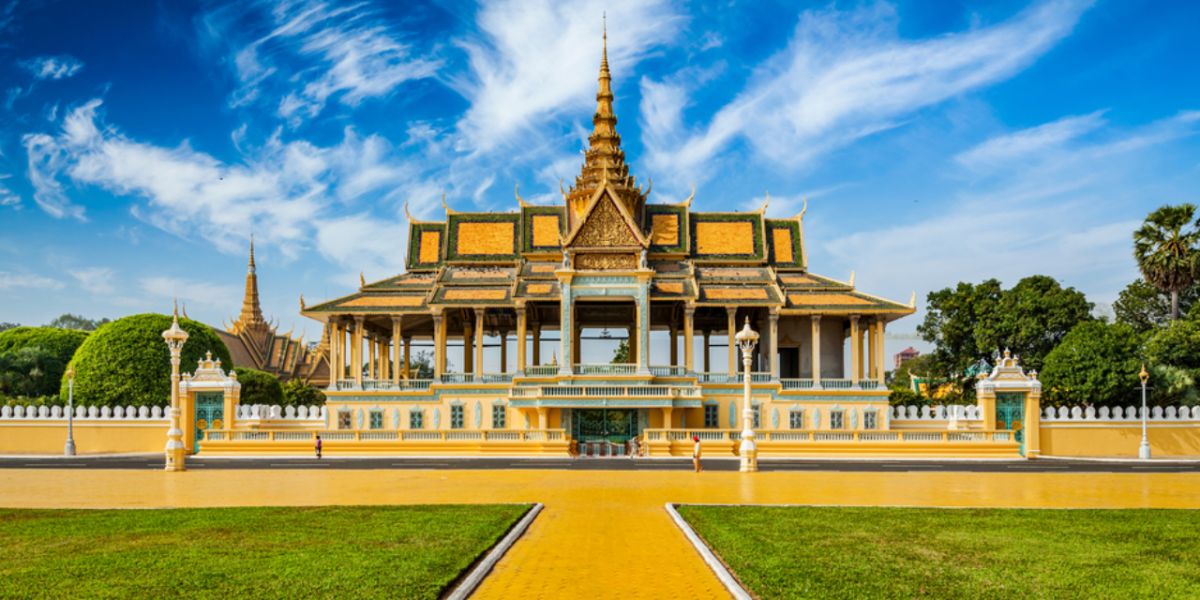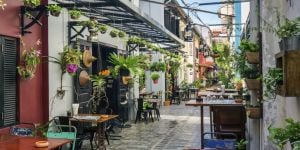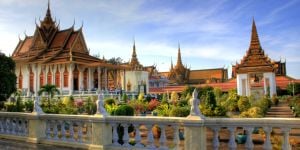
Cambodia incites a feeling of awe that can be said of a few other countries, and has rightfully earned its nickname the Kingdom of Wonder. Read this article to find out information that can help you on your travels to this magical destination.

The country is perhaps most renowned for its majestic temples of Angkor, which are remnants from the mighty Khmer empire and powerful points of pride for the Cambodian people. However, Cambodia is so much more than these iconic ruins.
At once chaotic and charismatic, the country boasts an array of beauty in its extremes. From gorgeous green paddy fields and bustling beaches, to cities replete with cosmopolitan cafes, French colonial architecture and a contemporary art scene, Cambodia will be sure to fill you with wonder at every turn.
Arrival and departure
You can enter Cambodia by air at any of its three international airports ' Phnom Penh International Airport, Siem Reap International Airport or Sihanoukville International Airport ' on a variety of international airlines.
Do be aware that when you leave the country, you will be required to pay a departure tax. As a foreigner, this tax is US$25 for adults and US$13 for children under 12 (free for children under the age of 2) who are travelling on an international flight. Adults travelling on a domestic flight will be required to pay US$6.
Although you can get an eVisa online before you travel, most nationalities are eligible for a visa-on-arrival that is valid for 30 days from your entry date. For this, you will need a passport photo and US$30 if you are coming for holiday purposes, and US$35 if you intend to work in the country. However, dont fret if you forget your photo, as you can have it taken by an official for a small additional fee.
Your passport will need to be valid for at least six months after the date you arrive in Cambodia, and do be aware that entry can be refused if it is damaged or has missing pages. When you arrive, your passport will be stamped and a departure form will be stapled to one of its pages. Make sure to keep the departure form until you leave Cambodia, otherwise you will have to contact immigration officials before leaving.
Cambodia borders three countries ' Vietnam, Thailand and Laos ' so if you wish to travel from any of these overland, you can enter the country at a variety of border crossings. There are 9 international border checkpoints from Vietnam, six international border checkpoints from Thailand, and one from Laos. For further details on border crossings and to find out whether you need to obtain a visa before arrival at certain checkpoints, visit the Access to Cambodia page of the official tourism website of Cambodia.
A similar procedure is likely to apply at most border crossings as at the international airports. However, do be wary of any potentially corrupt officials who may try to weasle a few extra dollars out of you. Before you start your travels, it's worth checking at your nearest Cambodian embassy, high commission or consulate about specific requirements and any updated changes regarding where you plan to cross. So long as you adhere to these, you shoudn't need to pay any money other than for your visa and photo.
If you have sea legs, you might be interested to know that Cambodia can also be reached by boat at the Sihanouk International Seaport, but do note that you cannot get a visa-on-arrival at this port.
It is also possible to reach the capital of Phnom Penh by taking a boat along the Mekong River from Vietnam. You can also travel along the Tonle Sap river between Phnom Penh and Siem Reap, which is a lovely alternative way to travel between the two cities and enjoy the scenery and way of living on the river.
Money
Cambodia has a dual currency system ' Khmer riel (KHR) and US dollar (USD) are both used. It is approximately KHR4,000 to USD1, but the rate can vary slightly depending on where you are buying it or trying to pay with it. Generally speaking, you'll find that Khmer riel is often used to pay for small things, such as a short motorbike ride or a streetside dish, and is the main currency in rural areas. For larger amounts, US dollar tends to be the currency of choice, although you may find that you pay for something in US dollars and receive Khmer riel in return.
Most ATM machines or money exchanges should be able to give you both currencies, and ATMs are available in Phnom Penh, Sihanoukville, Siem Reap and in some other major towns. Do make sure that you have sufficient cash when travelling to smaller, more remote towns as you may not be able to find an ATM or a money exchange when you're there.
Do also note that you won't be able to exchange Khmer riel outside of the country, and it's worth arriving with some US dollars to help you get started.
Vaccinations and precautions
It's advisable to visit your health professional at least a month before your trip to check whether you need any vaccinations or medicines for your travels. Ideally, you should be up-to-date with any vaccination courses and booster shots, such as hepatitis A, tetanus, typhoid, measles-mumps-rubella (MMR) and diphtheria-tetanus-polio vaccines.
Do be aware that there is a high incidence of rabies in Cambodia, so it is worth considering getting vaccinated beforehand. The virus has been found in both domestic and wild animals, as well as bats, so try to avoid contact with any unfamiliar animal, and be treated immediately if you are bitten.
Furthermore, there is the risk of contracting dengue fever or malaria in the country, so consider taking malaria tablets, especially if you intend to go off the beaten track. Unfortunately, there is no preventive measure for dengue, but try to wear long trousers and long sleeves after dusk, and it's worth using mosquito sprays or creams to ward off the mozzies. Sleeping with a fan or mosquito net at night will also keep them at bay and minimise your exposure.
There is no risk of yellow fever in Cambodia but under international health regulations, you will be required to show a yellow fever vaccination certificate if you are travelling (or transiting for more than 12 hours) from a country where there is the risk of yellow fever transmission.
The water is not drinkable in Cambodia, and health and safety measures are not always taken when preparing food. It is, therefore, advisbale to take special care when it comes to your food and water hygiene. A cholera vaccination may be worth considering if your activities or location in Cambodia could place you at increased risk.
Useful links:
We do our best to provide accurate and up to date information. However, if you have noticed any inaccuracies in this article, please let us know in the comments section below.








